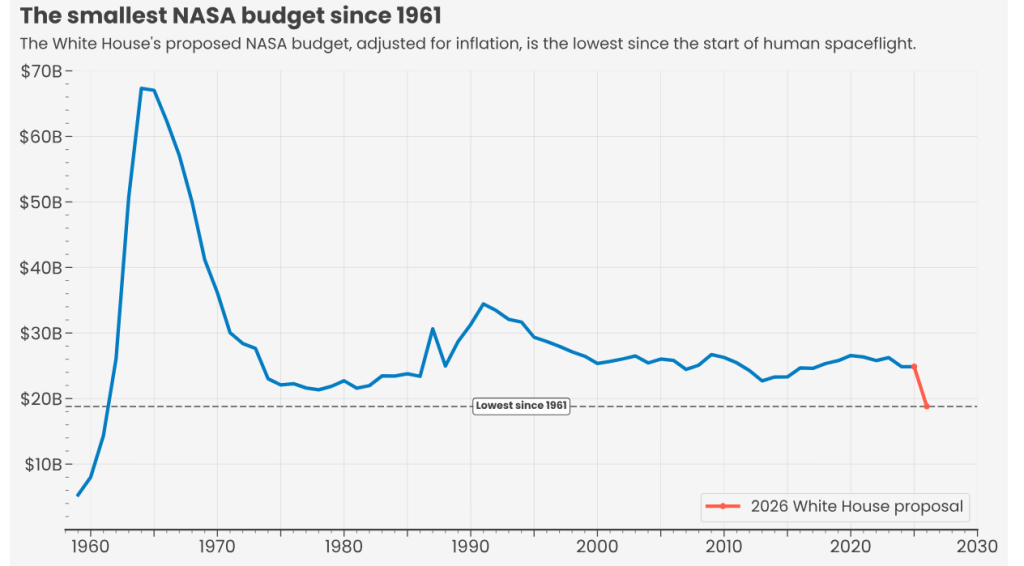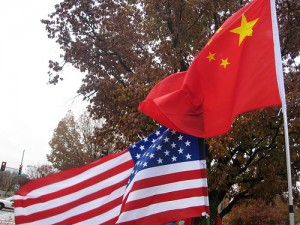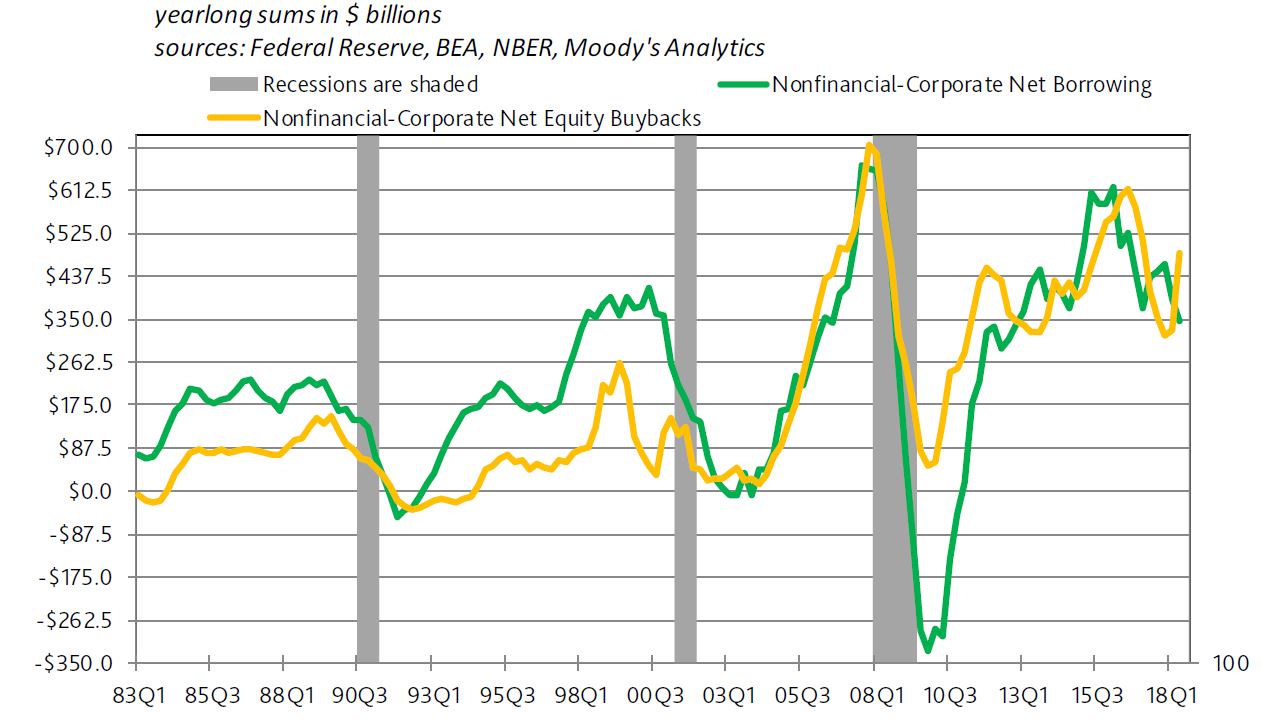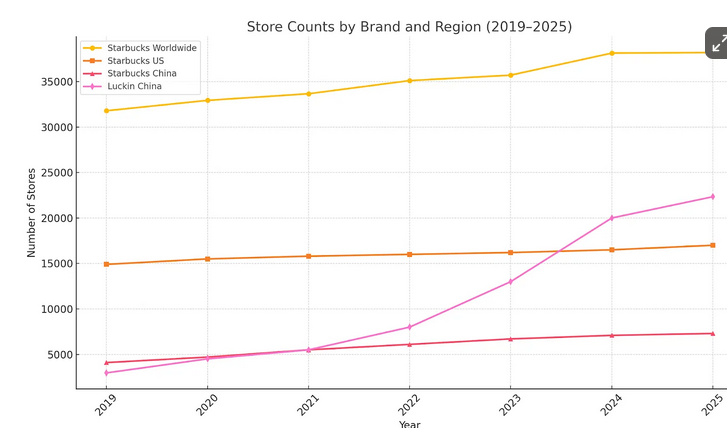
John Maynard Keynes
John Maynard Keynes believed that ideas, hospitality, travel, knowledge and science should move freely between nations. if a country could reasonably produce something physical it needed, it should. Trade should exist, but be kept to a minimum.
I’d like to highlight something Matt Stoller (the anti-trust guy) recently wrote:
In May of 2020, the Chinese Communist Party (CCP) declared its economic strategy, using the phrase “dual circulation.” Dual circulation meant fostering a domestic productive apparatus that is independent of foreign technology and finance, while making sure the rest of the world is dependent on Chinese control of key supply chains, whether it’s shipping, railroad construction, electric batteries, or solar panels. Chinese ‘grand economic strategy,’ in other words, is to operate as a giant monopoly on which the rest of the world must rely.
Matt says this isn’t about Trump, but notice it’s from 2020. It is about Trump: Trump in the first term, with his anti-Huawei sanctions. The Chinese realized they were vulnerable and the national effort became making sure they controlled all their own critical supply chains. Having seen how the US used financial sanctions and supplier boycotts, they regrettably decided to reverse the situation.
Now what one needs to understand is that after WWII American controlled most of the key supply chains outside of the Russian bloc. They had over 50% of the world’s industry. If you wanted something, you have to get it from them. Over time, this franchise expanded, first back to the Euros, as they re-built their industry, then to the Japanese, Taiwanese and South Koreans. All of these nations were firmly American vassals. Not allies, vassals with military bases in their countries.
The West, led by America and the USSR had all the advanced tech. In the 70s the USSR fell behind, they couldn’t manage the digital revolution happening, and then the USSR collapsed and the West, really America, ruled unchecked.
If you wanted any advanced tech: planes, cars, computers, weapons, etc… it had to come from America or one its vassals. The US effectively had “dual circulation”, especially since it also had full control of the international finance system and could lock anyone out at will.
This wasn’t theoretical, US sanctions on Iraq in the 90s under Billy Clinton killed at least hundreds of thousands of people. I once talked to an Iraqi oncological pediatrician from the 90s and her incandescent rage over all the children who died of cancer she couldn’t save because of American sanctions was so hot it blotted out the sun.
Once such sanctions had been rare (though there are cases back in the 50s.) The most notable is the multi-generation trade blockade of Cuba.
But from Clinton on use of these sanctions became routine, “Treasury’s Wars.” Millions died, many more were impoverished.
So, China has learned from the evil master. And it has decided that if there is such a weapon, it will have it and use it and no one else can have it.
Everyone who rages against this is correct. No country should have this power. Not America. Not China. No one.
We’re about 2 1/2 weeks into our annual fundraiser. Our goal is $12,500 (same as last year). So far we’ve raised $7,695 from 64 people out of a readership of about 10,000.
If you read this blog, you’re usually ahead of everyone else. You know, years in advance, much of what’s going to happen. The intelligence from this blog is better than what people pay $10,000/year for. Without donations and subscriptions, this blog isn’t viable. If you want to keep it, and you can afford to, please give. If you’re considering a large donation, consider making it matching. (ianatfdl-at-gmail-dot-com).
Subscribe or donate.
What should be the case is a trade regime where everyone makes most of what they need. Need medicine? Make it in your country. (Shut up about prices, if the supply chain is domestic then almost all that crap that MMTers go on about becomes true. Prices are irrelevant, it’s all in money you print.) To the largest degree possible, everyone makes what they need. Smaller countries will have a harder time, and trade-states like Singapore obviously can’t, but this is what a good world looks like.
This maximizes political autonomy, too. You can’t be blackmailed by other countries. Spread nukes around, and much military force goes off the table too. (And they are going to spread. The US has taught everyone that if you have nukes you’re safe, and if you don’t, you’re dinner.)
So. China is teaching the Western world the same lesson America taught China and Africa and Iraq, and Iran and Cuba. We: Europe, the Anglo countries, South Korean, Taiwan and Japan, were inside the bubble during the period when the US allowed its vassals decent lives. (Oh, they destroyed Japan’s tech and industrial lead, they gutted Britain after WWII, they forced Canada to destroy its world leading aviation industry), but overall, if you were on the inside of the “Golden billion” or, early, “the golden 500 million”, life was pretty damn good.
America used the whip, its vassals jumped to obey and everyone else was poor.
Then Americans got stupid and thought that China was like Japan, they could ship their industry there, makes lots of money and if necessary bring China to heel if it got out of hand.
Wrong. Morons. I and others warned about this for decades, how stupid it was, but no one in power listened. Probably a good thing, since it led to a billion people getting out of poverty, but it’s not going to be fun for those us living in the West.
So: the weapon is being wrested from the old hegemon’s palsied hands, and being wielded by the apprentice, the new master, the new hegemon.
Bow, insects, the new lord is here. And no, America isn’t going to get its hegemon status back, nor should anyone who isn’t American want it to.
The actual solution is Keynes solution. No one should have the weapon—the power—because every country should make, grow and dig as much of they need as possible, using trade only for what they genuinely can’t make or for luxuries they can do without in a pinch.
Subscribe or donate.


 It is now over 20 years ago that I first wrote that Israel would either become a single, secular state, or it would ethnically cleanse or genocide the Palestinian. There were no other solution sets: the land is not actually large enough, nor does it have enough water to divide it into two states and in any case, it was obvious Israelis would never go for that.
It is now over 20 years ago that I first wrote that Israel would either become a single, secular state, or it would ethnically cleanse or genocide the Palestinian. There were no other solution sets: the land is not actually large enough, nor does it have enough water to divide it into two states and in any case, it was obvious Israelis would never go for that.

 Starbucks sells expensive sugared drinks, and some of them have coffee in them. It’s been very profitable and despite some declines, remains so. The CEO was paid about $96 million last year. He was brought in to “turn Starbucks around”, and his main moves have been towards returning Starbucks to its roots as a “third place”, which is to say, somewhere other than work or home where people spend time.
Starbucks sells expensive sugared drinks, and some of them have coffee in them. It’s been very profitable and despite some declines, remains so. The CEO was paid about $96 million last year. He was brought in to “turn Starbucks around”, and his main moves have been towards returning Starbucks to its roots as a “third place”, which is to say, somewhere other than work or home where people spend time.

While reading deeper, I found something much more important: a lot of these new humanoid startups aren’t building from scratch. Instead, they’re standing on the Unitree G1 frame and layering their own proprietary AI on top. That means Unitree has quietly become the default hardware platform for China’s humanoid boom — like the Android of robot bodies.
A few examples:
1. A-Bots Robotics (Shenzhen, 2024)
• Focus: precision assembly, modular SDK
• AI layer: Baidu Ernie-ViLM for object manipulation
• Notes: 150+ units in Foxconn trials; ~$22k package; tuned for fragile electronics
2. HPDrones Tech (Guangzhou, 2023)
• Focus: warehouse logistics + drone hand-off automation
• AI layer: proprietary SLAM + multi-floor routing
• Notes: partnered with Unitree; 500-unit rollout for e-commerce warehouses in Q1 2026
3. LeRobot Labs (Beijing, 2024)
• Focus: open-source robotics + reinforcement learning
• AI layer: embodied datasets, tool-use improvisation
• Notes: hacked 20+ G1s for universities; GitHub repo exploded; expanding to eldercare
4. Weston Intelligence (Hangzhou, 2023)
• Focus: healthcare — vitals scanning, bedside conversations
• AI layer: Tencent Hunyuan conversational model
• Notes: deployed in Shanghai hospitals; sub-$20k price; measurable patient-compliance benefits
5. DexAI Dynamics (Shenzhen, 2024)
• Focus: dexterity — folding fabric, micro-adjustments, teleop self-supervision
• Notes: $80M raised; 100 units deployed in garment factories; arguably the best hands in China now
And then there’s MindOn — the one that caught my eye earlier — using the G1 frame to build a full butler/housekeeping robot (“MindOne”). One of their engineers even said they eventually want their own frame, but that’s the point: everyone is starting on Unitree first.
Unitree has locked down the humanoid robot ecosystem
All these startups — even if they eventually design their own skeletons — are still tying their early models to:
• Unitree’s frames
• Unitree’s actuator supply chain
• Unitree’s low-cost motor ecosystem
• Unitree’s software layer and APIs
Once you build your first few generations on someone else’s chassis + firmware, you’re effectively locked into their ecosystem. Switching costs explode. You’d have to rewrite half your AI stack.
So Unitree has already achieved what Western robotics companies wish they could do:
Become the default hardware substrate for an entire national robotics industry.
This is exactly how China overtook the West in EVs — standardized hardware, cheap mass manufacturing, and dozens of startups building on top of the same base.
Unitree is still a private company.
Given everything above, the most obvious question becomes: When does Unitree IPO?
On 15–16 November 2025 (literally this weekend), Unitree completed its pre-IPO regulatory tutoring with CITIC Securities — an unusually fast four-month process that normally takes 6–12 months.
The company publicly stated in September that it expects to submit the formal prospectus and listing application to the Shanghai STAR Market between October and December 2025.
Market sources still quote a targeted valuation of up to US$7 billion (≈50 billion RMB).
Once the prospectus is accepted (usually 2–4 rounds of CSRC questions), the actual listing can happen remarkably quickly in a hot sector — sometimes inside 3–6 months. A Q1/Q2 2026 listing is the base case, but a very late-2025 listing is still possible if the regulator fast-tracks it the way they have the tutoring.
What About America?
Meanwhile… America’s Great White Hope Elon Musk is already behind.
Elon Musk promised that the U.S. would lead the humanoid robot race with Tesla Optimus — but the timelines have slipped, and the window has basically closed. By the time Musk’s robot is actually ready for real-world deployment — 2 years from now? 3? — China’s robotics companies will already be deep into mass production, with tens of thousands of units deployed across factories, warehouses, homes, hospitals, and service industries.
And let’s be real — we all already know this:
Tesla will NOT be cost-competitive. Not even close.
China has already hit the sub–$20k price point for serious humanoids. Several G1-derived platforms will likely break below $15k. Meanwhile, Tesla Optimus — if it gets out of prototype limbo — will land somewhere between $20k–$40k+, before customization, localization, or integration costs. It’s the exact same pattern we saw with EVs, solar panels, drones, lithium batteries, telecom gear — the U.S. builds one expensive proof-of-concept; China builds ten factories and ships globally.
So yes, Tesla’s robot may survive inside the U.S., but only through:
• tariffs,
• import bans,
• national-security excuses,
and whatever industrial-policy tool Washington can wield.
It won’t survive on merit. It will survive on protectionism.
But step outside the U.S.?
Why would any ASEAN, Middle Eastern, African, or Latin American country buy a Tesla robot when Unitree, UBTech, XPeng, and others are offering machines that are:
• cheaper,
• and available now — not in 2027,
• generations ahead and more advanced by 2027.
You think Indonesia, Malaysia, Brazil, Mexico, Turkey, or Saudi Arabia is going to pay double the price for a worse robot just to keep Washington happy? You think they’re going to turn down a $12k Unitree or $16k UBTech because Trump tries to bully them into paying for a $35k American robot instead?
The U.S. will absolutely try to pressure, coerce, or outright threaten developing countries into “buying American” — the same way it pressures them on telecom, semiconductors, energy infrastructure, ports, and industrial policy. But this time I don’t think most countries will obey.
They have options now.
By the time the U.S. finally ships its first commercially deployable humanoids in 2–3 years, the rest of the world will already be locked into the Chinese robotic ecosystem — Unitree frames, Chinese actuators, Chinese SDKs, Chinese AI integration, Chinese supply chains.
The EU, Australia, Japan, South Korea, and Taiwan — effectively U.S. satellites — may follow Washington’s orders and switch to American robots. Maybe. If their economies in two years can still afford it.
Everyone else?
Forget it.
Forcing U.S. factories and businesses to buy “American-only” humanoid robots — which will be more expensive and less advanced — will cripple U.S. competitiveness across the board.
If American companies are stuck paying $30k–$40k per unit for less capable Tesla or U.S.-made robots, while factories in China, Malaysia, Indonesia, Brazil, Vietnam, Mexico, Turkey, and everywhere across the Global South are deploying $12k–$18k Chinese robots at scale, the cost gap between U.S. and foreign manufacturing will explode. And it won’t stop at robotics — it will cascade downstream into every single sector that depends on automation:
• logistics
• warehousing
• construction
• agriculture
• textiles
• electronics assembly
• packaging
• even retail, service, and hospitality
If U.S. firms are locked into a high-cost, low-capability robotic ecosystem while the rest of the world uses cheaper, better, faster machines, then every American industry that relies on automation gets structurally handicapped. That’s not just a disadvantage — that’s YUGE and permanent.
So Trump’s protectionism will actually accelerate the decline of U.S. manufacturing competitiveness. Because the battlefield is no longer labor cost — the battlefield is automation cost.
And China will win that fight by orders of magnitude.
This is also why I doubt even America’s closest aligned countries will follow U.S. orders when Washington eventually demands they drop Chinese robots and buy American ones. Unless they’ve developed a death wish for their own industries, they simply can’t afford to sabotage themselves like that — especially when their economies will likely be in even worse shape two years from now.
Except Europe. Europe will probably obey, because their heads are shoved so far up America’s arse they can’t even think straight — and then there’s that incessant, obnoxious demand of theirs: “You must stop be friend with Russia first or we won’t play with you!”
In my opinion China will eventually move toward some form of universal income or redistribution. Once robots replace most human labor, the state will simply “tax” robotic productivity — in whatever form it chooses — and channel that output back to the population. China can do that because the government actually has the authority, the ideology, and the political structure to redistribute.
After all, that’s the logical endgame of communism, isn’t it? A fully automated productive base supporting human welfare.
America? No such luck.
In the U.S., the elites — the top 5%, or really the top 1% — will own the robots. They’ll own the factories, the logistics chains, the land, the means of production, and the automated labor force. Everyone else below them will get… nothing. No jobs, no prospects, no future, nada. Just a growing underclass structurally locked out of the new automated economy, where human labor is obsolete and redundant.
And unlike China, the U.S. government can’t — and won’t — redistribute. It won’t tax robots because it won’t tax the ultra-rich. It won’t implement a universal income. It won’t structurally rebalance anything. The millions displaced by automation will simply be left to rot — not because the technology is bad, but because the political system is incapable of adapting to it.
And if there’s one thing I’ve learned comparing Americans and Chinese: Americans are astonishingly ideologically rigid, stubbornly wedded to outdated principles even when reality punishes them. The Chinese, by contrast, are pragmatic — willing to bend, adapt, and change. That adaptability will matter a lot when robots replace human labor and make capitalism, as we know it, obsolete.
That’s why America is panicking. They know they can’t adapt.
Ian Comments: again, China is ahead in most technologies and they have an unparalleled ability to scale. Once they scale, no one else can compete. You either find a place where you’re ahead and concentrate on staying ahead, or you find a niche. It used to be that China didn’t feel the need to be ahead in everything, but Trump, in his first time, with his sanctions, changed that. The Chinese realized they had to own full stack of everything.
One side effect of this is that Musk isn’t going to get his one trillion dollar payday. It’s based on him hitting targets, including in humanoid robots which he won’t be able to make, because Tesla’s too far behind and lacks the ability to scale.
More on the transition away from labor-distribution capitalism soon.
And great piece by KT. Thanks for letting me post it.